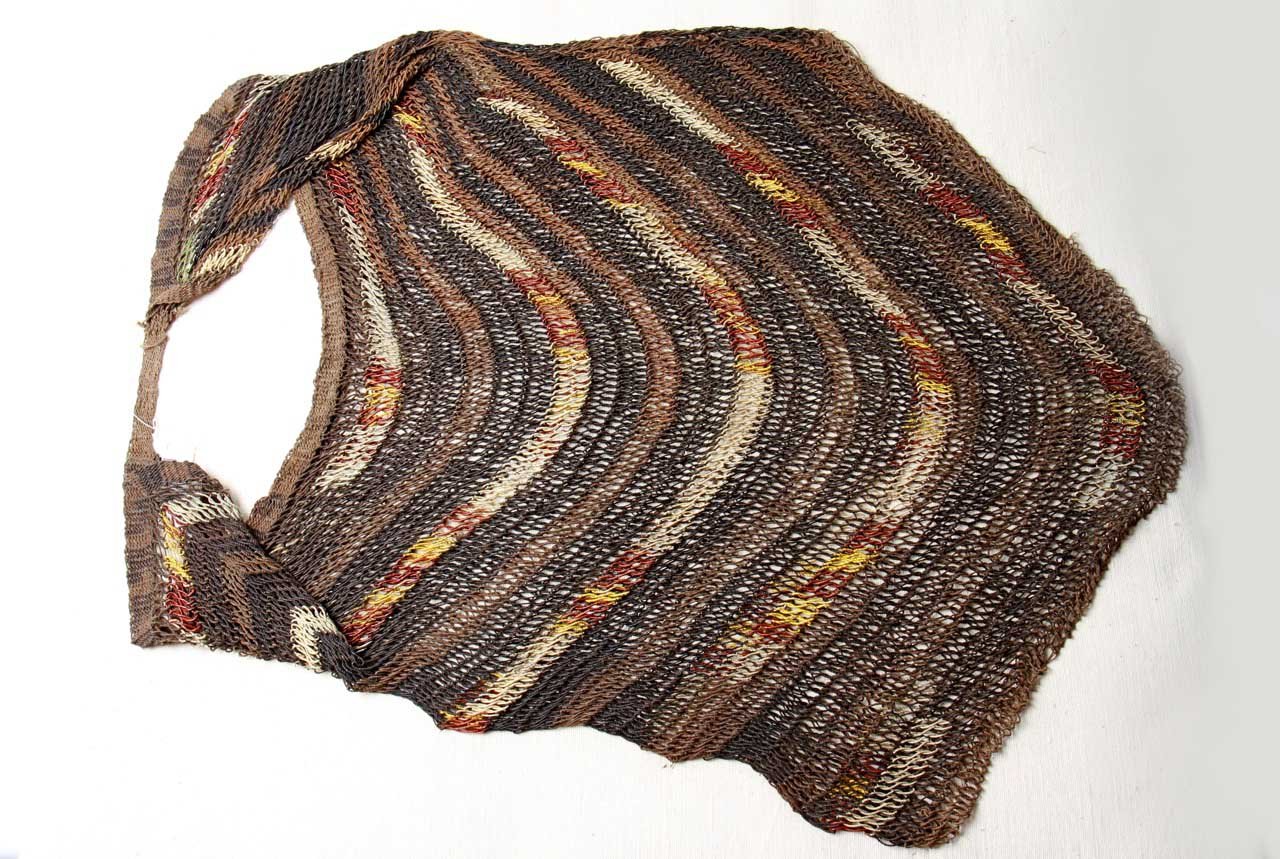Our Global Neighbours: Noken from Papuan Highlands
A Noken is a hand-woven bag made and used by Dani, Lani and Yali people in the Baliem Valley region of the highlands of Papua Province of Indonesia. It is typically woven from a single strand of natural bush fibre string made from the Gnetum gnemon – a small to medium-sized tree – known as melinjo or belinjo in Papua.
A string is made from dried bark fibre by twisting it tight into thin cord. Traditionally noken was made in various shades of brownish colour, but sometimes a colour pattern is created by adding different fibres such as grass and orchid bark or, more recently, even nylon string. Many people, native users and visitors, prefer bags with coloured designs. The bag is made using the knotless netting technique which creates loops resembling a figure eight. This special technique gives noken a distinct quality – it can expand and adjust to the shape of objects kept within.

© Australian Museum
The noken can be large or small and it is very versatile. People use them for carrying babies, piglets, food and firewood – anything that needs to be carried. Traditionally a bag’s single handle is placed around the forehead and hangs down the person’s back. In this way the person carrying it has free hands and can keep good balance while walking up or down the mountains. This mode of carrying is reflected in how the noken is worn for traditional ceremonies. Women use them to cover their hair or chest as clothing and it is also worn by itself on the head on special celebrations.
Recently younger people and students use noken for carrying their books and possessions when attending college or university, or travelling from village to village. Very small ones are even used for carrying mobile phones.
In 2012 noken (with its related tradition) was listed by the UNESCO – United Nations Educational, Scientific and Cultural Organisation - as the Intangible Cultural Heritage.
Explanation:
Gnetum gnemon, native to South East Asia and the western Pacific is also used as a food source. For example the seeds are used for sayur asem (sour vegetables soup) or ground into flour and deep-fried as emping crackers (a type of krupuk).
Story by Novita Wenda

